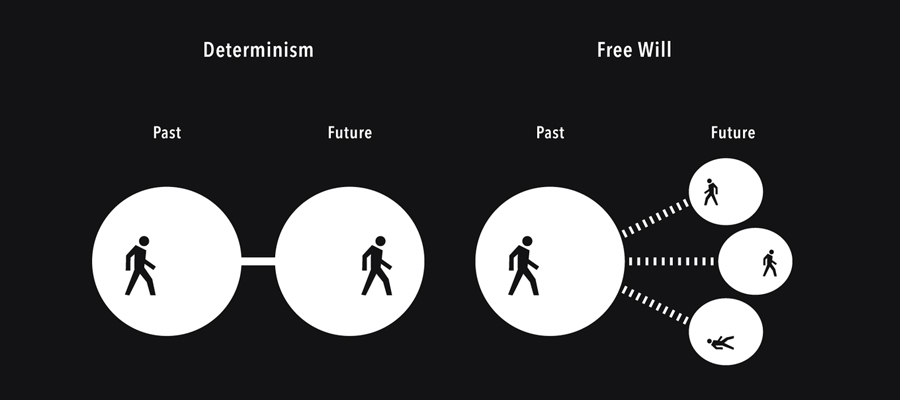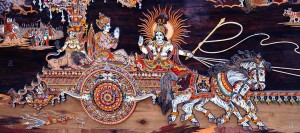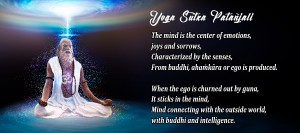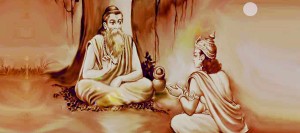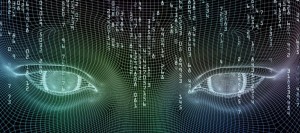Most of us are certain that we have free will, though what exactly this amounts to is much less certain. According to David Hume, the question of the nature of free will is “the most contentious question of metaphysics.” If this is correct, then figuring out what free will is will be no small task indeed. Minimally, to say that an agent has free will is to say that the agent has the capacity to choose his or her course of action.
But animals seem to satisfy this criterion, and we typically think that only persons, and not animals, have free will. Let us then understand free will as the capacity unique to persons that allows them to control their actions. It is controversial whether this minimal understanding of what it means to have a free will actually require an agent to have a specific faculty of will, whether the term “free will” is simply shorthand for other features of persons, and whether there really is such a thing as free will at all.
This article considers why we should care about free will and how freedom will relate to freedom of action. It canvasses a number of the dominant accounts of what the will is, and then explores the persistent question of the relationship between free will and causal determinism, articulating a number of different positions one might take on the issue. For example, does determinism imply that there is no free will, as the incompatibilists argue, or does it allow for free will, as the compatibilists argue? This article explores several influential arguments that have been given in favor of these two dominant positions on the relationship between free will and causal determinism. Finally, there is a brief examination of how free will relates to theological determinism and logical determinism.
Free Will, Free Action and Moral Responsibility
We most often think that an agent’s free actions are those actions that she does as a result of exercising her free will.
Freedom consists of no external obstacles to a person who does what he wants.
A free person is he who can do what he wants and be patient as he pleases.
Freedom is the absence of external obstacles.
In Questions Regarding Human Understanding, that free will is simply “the power of action or inaction, according to the will of the will: that is if we choose to remain silent; if we can also choose to move. Freedom is only the ability to choose actions, and an agent must free if he is not prevented by some external obstacles to complete the action.
Whether a person can have freedom of action without free will depends on one’s view of what free will is. Also, the truth of causal determinism will not require that agents do not have the freedom to do what they want to do. An agent can do what he wants to do, even if he is determined to do it. As such it is precisely categorized as a compatible person.
Even if there is a difference between free will and freedom of action, it seems that free will is necessary for the implementation of free action.
Another reason for caring about free will is that it seems necessary for moral responsibility. While there are various stories about what moral responsibility really is, it is widely agreed that moral responsibility is different from causal responsibility.
Depending on one’s cause and effect account, it is also possible to be morally responsible for an event or condition, even if a person is not responsible for the same event or condition. For the current purpose, let us say that an agent is morally responsible for an event or condition only if he is the recipient of moral praise or moral error that is appropriate for the event or condition. According to the view of the relationship between free will and moral responsibility, if the agent does not have free will, then the agent is not morally responsible for his actions.
Some philosophers do not believe that free will is needed for moral responsibility. According to John Martin Fischer, humans do not have free will, but they are morally responsible for their choices and actions. In short, the type of control needed for moral responsibility is weaker than the type of control needed for free will. Furthermore, the truth of causal determinism will hinder the type of control needed for free will, but it will not hinder the type of control needed for moral responsibility.
However, many think that the importance of free will is not limited to the need for free action and moral responsibility. Philosophers assert that free will is also a requirement for agency, rationality, autonomy, and dignity of people, creativity, cooperation, and the value of friendship and love. Thus we see that free will is the center of many philosophical problems.
Will Model
The model of will has origins in the writings of ancient philosophers, and that is the dominant view of desire in the middle ages and modern philosophy. Still has a lot of supporters in contemporary literature. What is different from free agents, according to this model, is their ownership of certain powers or capacities. All living things have several capacities, such as the capacity for growth and reproduction. However, what is unique about free agents is that they also have the capacity to think and be willing. Another way of saying this is that free agents themselves have intellectual abilities and wills. It is a virtue to have these additional faculties, and the interaction between them, that agents have free will.
Intellect, or rational ability, is the power of cognition. As a result of cognitive, intellect presents various things as you wish with an explanation. Furthermore, all agents who have intelligence also have the will. Desire, or state of will, is the desire for good; that is, he is naturally attracted to goodness. Therefore, the will cannot pursue the choices presented by the intellect as a good thing. The will can command the body to move or the intellect to consider something.
A person who has intelligence can act with free judgment, as long as he understands the general tone of goodness; from which he can judge this or other things to be good. As a result, wherever there is intelligence, there is free will.
Through the interaction between intellect and will, a person has the free will to pursue something that he considers good.
Hierarchical of Will
Not all desires produce physical actions. Even if someone has conflicting desires, then it is impossible for someone to satisfy all their desires. Such effective desires are called volition; volition is the desire that moves a person to physical action. Likewise, one can distinguish between mere second-order desires (only desires to have certain desires) and second desires (desires for desires to be one’s will, or desires for desires to become desires).
According to the view of the will hierarchy, free will consists of having a volume of orders. In other words, a person has free will if he can have the type of desire he wants. A person acts of his own free will if his actions are the result of the desire of the first order that he wants to be the desire of the first order.
The treatment of freedom will take as a starting point the claim that a person involves sensitivity to certain reasons. A person acts with free will if he is responsive to appropriate rational considerations, and he does not act with free will if he is less responsive like that.

